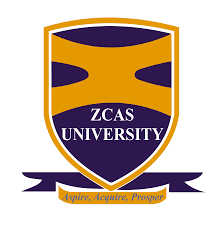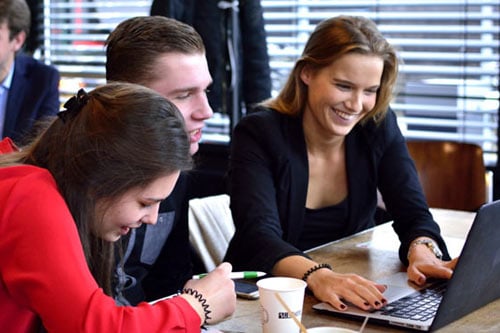Our special guest was Edwin Phiri. Edwin specialises in marketing and strategic thinking at the Fashion Business School at the London College of Fashion which resides within the University of the Arts London. He has over 15 years as a subject expert and made the move from Birkbeck to the University of Arts London. In this setting he teaches more creative, non-business students, in contrast to his previous work at Birkbeck.
For a lot of the creative students enrolled at the London College of Fashion, strategic thinking and marketing is not what they have signed up for but most understand that it is a necessary skill if they are to apply their creativity at an industry level. For this reason the Fashion Business School was founded and since then it has complimented UAL students with a business education. Fashion businesses are far reaching in their influence of many industries in terms of aesthetic trends which, in turn infiltrate the wider cultural fabric of society. It could be a lipstick, the interior of the latest high performance sports car or a piece of furniture. Advocated by the right influencers, a creative idea of one business minded creative person can lead to a global trend and a lot of profit for businesses.
"The students absolutely love the competitive nature of it"
At the root of it all is a product, a key part of the marketing mix. That product is subject to a design mix which is made of of three elements; aesthetics, functionality and cost of manufacturing. Three variables that makers of products must contend with. Edwin shares his experience with teaching the spectrum of student cohorts from business students at Birkbeck, to creative non-business students on the BA Fashion Marketing through the BA Fashion Buying and Merchandising to the scientific focus of the Msc Cosmetic Science. He gives useful advice on how to implement experiential learning through business simulations from the departmental level down to the individual lessons which form a module scheme of learning.
- Why did you included Edumundo business simulations into your teaching practice?
- Which simulations did you choose and why?
- How have MMX and Prosim helped your students?
- How have MMX and Prosim helped your teachers?
- What has the student feedback been?
- How have you implemented the simulations at a departmental level?
- How are you making use of assessment with the simulations?
Two of the Edumundo simulations are being used across 3 courses at the London College of Fashion. The BA Fashion Marketing is using My Marketing Experience (MMX), which was adapted for the Fashion Business School to be an introductory level marketing module. For the BA Buying and Merchandising MMX was implemented to apply strategic marketing in the context of reselling and merchandising. Two factors at play at the BA level is the integration between the teaching approach, curriculum and the simulation itself. Finally at Level 7 the Msc in Cosmetic science is offered as an integrated masters course where the The London College of Fashion are using ProSim used in an integrated Msc in Cosmetic Science, customised to focus the competition in the cosmetic products markets. When integrated in this way the outcome of the simulation games is an industry level business acumen.
The business simulations made the learning accessible for a wide range of students. On the other hand it also increased teacher engagement. One of the common questions Edwin gets from his teaching team comes from teachers wants to bring in current real world events into the simulation experience. Due to the fact that the market forces which create the Edumundo simulation game environment are determined by the actions of the players and the actions of the players. The players decisions are being influenced by the real world they live in, which in turn influence the students decisions in the game. It is down to the teachers who can either choose to sandbox the experience, asking students to ignore the outside world during the simulation or customise the simulation by embedding news updates within the games to highlight specific real world events through the Edumundo customer success team. A comfortable middle and decentralise position is what Edwin encourages his teaching staff to do. Students use the real world as part of the reflection and review tasks assigned and assessed by teaching staff after the simulation has come to an end. This way the results of the students business within simulation game is used as a personalised case study which benefits learning.



.png?length=300&name=unnamed%20(11).png)
.png?length=300&name=unnamed%20(7).png)
.png?length=300&name=unnamed%20(8).png)
.png?length=300&name=unnamed%20(6).png)

.png?length=300&name=unnamed%20(10).png)
.png?length=300&name=unnamed%20(5).png)
.png?length=300&name=unnamed%20(9).png)
.png?length=300&name=unnamed%20(4).png)
.png?length=300&name=unnamed%20(2).png)
.png?length=300&name=unnamed%20(1).png)
.png?length=300&name=unnamed%20(3).png)
.jpg?length=300&name=unnamed%20(2).jpg)





.png?length=300&name=loughborough-university-logo%20(small).png)





